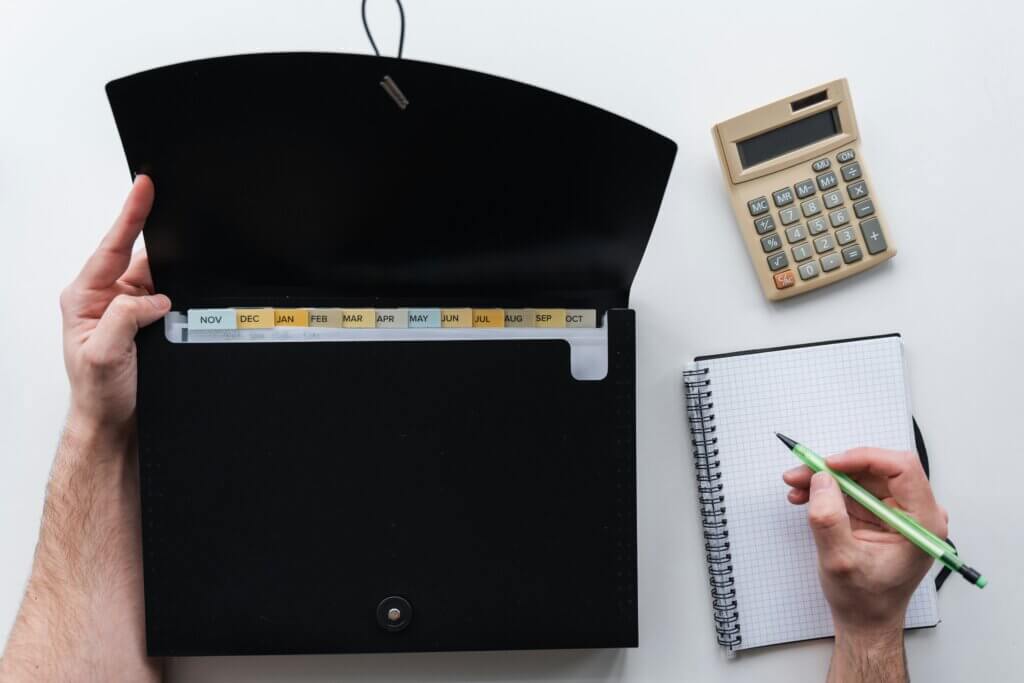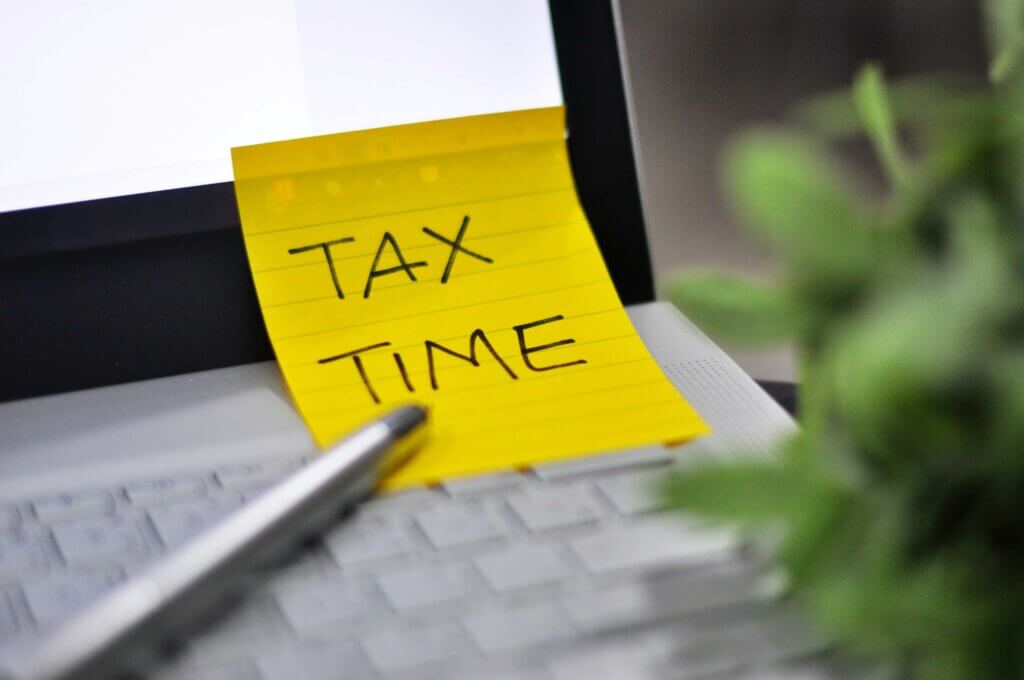Max dreaded the first week of every month. Bills flooded in, scattered across his mailbox, email inbox, and a few apps on his phone. He’d scramble to remember passwords and hunt for due dates, sometimes missing a payment entirely.
The late fees and stress seemed like an unavoidable part of adult life—until he spent a Sunday afternoon figuring out how to organize bills and create a simple bill payment system.
Now, Max manages all his monthly bill payments in under 30 minutes, hasn’t paid a late fee in over a year, and actually feels in control of his finances.
Like Max, you can save time, avoid late fees, and gain peace of mind by creating a simple system for managing bills. All you need is the will and a little time to learn how to organize bills. In a few basic steps, you can implement a bill payment system that puts you in charge.
In this article, we’ll walk you through practical methods for organizing your bills, setting up reminders, and establishing a streamlined bill payment routine.
You’ll free up mental space to focus on what really matters—whether that’s building savings, reducing financial stress, or planning for future goals.
Take Stock of Your Monthly Bills
Before exploring how to organize bills, first get familiar with what you’re actually paying each month. Think of it as a “financial reality check.” You might even uncover opportunities to trim expenses.
You’ll also want to get a handle on where your bills come from. Most people get a mix of paper and digital bills. Believe it or not, American consumers pay 10.6 billion bills online each year; 77% are made directly through companies’ websites and mobile apps.
While many companies offer paperless options, you might still receive some bills in your mailbox. Others may arrive through email or app alerts.
Many people spend hours every month tracking down, sorting, and paying bills. Without a system for managing bills, important documents can easily get lost in the shuffle, leading to missed payments and late fees, and even damaging your credit score.
Know Your Financial Obligations
Start by making a complete list of your monthly bills. Here are some examples:
- Housing: rent/mortgage, HOA fees.
- Utilities: electricity, water, gas, internet, phone.
- Insurance: health, auto, home/renters.
- Debt payments: credit cards, student loans, personal loans, auto loans.
- Subscriptions: streaming services like Netflix or Hulu, gym memberships, software.
- Other recurring expenses: childcare, tuition payments.
You might be surprised to discover how many monthly payments you’re juggling. Compiling a master list is an important first step toward getting a handle on your bills.
Evaluate Your Current Bill Management Method
Once you have your list, consider if your current bill management approach is working for you. Ask yourself (and be honest!):
- Do you receive bills from multiple sources (email, mail, various apps)?
- Do you spend a lot of time each month tracking down and paying bills?
- Have you missed payments or paid late fees in the past six months?
- Have you overlooked billing errors?
- Do you feel stressed about your finances, especially around bill-paying time?
If you answered “yes” to one or more of these questions, it’s probably time to get organized. A good bill payment system can help you avoid late fees, catch billing errors early, and reduce the mental load of managing your finances.
A System for Organizing Bills
Creating a bill management system doesn’t have to be complicated. The most effective organizational method is one that you’ll use consistently, whether it’s digital, paper-based, or a combination of both.
1. Gather All Your Bills in One Place
The first step to getting organized is to establish a designated space to keep all your bills.
For paper bills:
- Create a physical inbox, like a tray on your desk or kitchen counter, to put bills in as soon as you get them.
- Scan important documents into your computer or mobile device if you want to keep digital copies.
- Use a labeled folder or binder to store paper bills and other essential documents.
For digital bills:
- Create clearly labeled email folders for bills and financial statements.
- Download statements to a dedicated folder on your computer.
- Consider using a password manager to keep track of all your billing account logins.
Check your mailbox daily or every other day. If possible, sort and file bills as soon as they arrive so you’re less likely to forget to pay them.
2. Choose an Organization Method That Works for You
The key to successfully managing bills is finding a system that’s easy to use and fits your lifestyle. Here are some practical options to consider:
Digital organization strategies:
- Use a spreadsheet with individual columns for bill names, account numbers, due dates, payment amounts, and payment status.
- Try budgeting apps—some automatically import and categorize bills from your online accounts.
- Create a clearly labeled digital filing system (e.g., “Utility_Electric_March2025”).
- Set up calendar reminders to notify you 3-5 days before each bill is due.
Paper organization strategies:
- Create a bill payment calendar where you record every due date at the start of each month.
- Store bills in a binder with monthly dividers and colored tabs for different categories.
- Set up a simple two-folder system: “To Pay This Month” and “Paid This Month”.
- Keep a payment log where you record the date, amount, and confirmation number for each payment.
Folder organization systems (for digital or physical bills):
- By month: Create 12 folders labeled January-December and file bills in the month they’re due.
- By bill type: Make separate folders for utilities, rent/mortgage, insurance, etc.
- By due date: Group bills into folders based on when they’re due throughout the month or when you get your paycheck (i.e., 1st-15th and 16th-31st).
- Hybrid approach: Use colored folders for different bill types, arranged in due-date order.
Whichever method you choose, check your bills to make sure they’re accurate before paying them. A quick review can help you spot billing errors, services you don’t need, or unexpected price hikes before they strain your budget.
3. Rely on Reminders for Timely Payments
Our brains aren’t designed to keep track of multiple deadlines without help. This is where calendars and reminders can be powerful tools for paying bills on time.
Psychological research shows that reminders trigger memory pathways in our brains, making it easier to recall important tasks when we need to. Think of them as gentle nudges that help you follow through on your intentions, especially for recurring obligations like bills.
Reminders like these may help keep payments on track:
- Add all bill due dates to your online calendar and set alerts 2-3 days before a payment is due to give yourself a buffer in case of unexpected delays or account transfers.
- Use your smartphone’s reminder app for bill payment notifications.
- Take advantage of email or text notifications from companies you pay regularly.
- Schedule a weekly “bill check-in ” to review upcoming payments.
Life gets chaotic sometimes. These simple reminder hacks can help you make sure your bills get paid on time even during hectic months, saving you from stress, late fees, and financial headaches down the road.
4. Consider Autopay for Added Convenience
Automatic bill payments can be a powerful tool when it comes to staying organized.
Basically, autopay is a hands-off approach that lets you schedule your bill payments in advance, eliminating the need to pay them manually each month.
Autopay offers benefits like:
- Avoiding missed payments and late fees.
- Saving you time.
- Helping boost your credit score with on-time payments.
- Taking the hassle out of juggling multiple due dates.
However, autopay also has some downsides:
- You need to keep sufficient funds in your payment account to avoid overdrafts.
- You might miss potential billing errors if you don’t review statements regularly.
- You may struggle to cancel automatic payments with some companies.
- You could lose track of how much you’re spending on certain services.
If you choose to use autopay for bills, be strategic. Consider setting up automatic payments for expenses that are the same each month like mortgage or loan payments, while manually paying bills that fluctuate, like utilities or credit cards.
Fine-Tune Your Bill Management Routine
Even the best systems need regular tune-ups. Here are some strategies to keep your bill management process running smoothly:
Regularly Review Your Bill Payment Methods
Revisit your bill payment approach at least once or twice a year. Pay careful attention to areas for improvement, such as recurring billing errors, unnecessary fees, and missed due dates.
Doing these periodic check-ups can help you identify opportunities for streamlining or cost savings that you might otherwise overlook.
Check Bills for Accuracy
Review bills carefully before paying them. Occasional billing errors are common, and catching mistakes can save you a significant amount of money over time. A quick scan of your bill can reveal:
- Unexpected price increases or costs.
- Services you didn’t request or don’t need.
- Duplicate charges.
- Fees that should have been waived.
For example, a higher-than-normal utility bill might indicate that you have an appliance that’s not functioning properly or a leak that needs to be repaired. Taking a few minutes to review each bill before paying it can help you avoid extra costs that could bust your budget.
Understand the Impact on Your Credit
Consistent, on-time bill payments are one of the most effective ways to build and maintain good credit. That’s because your payment history is the biggest contributor to your credit score.
Late payments can negatively impact your credit, potentially making it harder to qualify for loans or credit cards with favorable terms in the future. By staying organized and avoiding late fees, you’re also protecting your borrowing power.
Free Yourself From Bill Management Stress
Imagine having complete clarity about how to organize bills, with every payment accounted for and no unexpected surprises.
A sound bill management system won’t solve all your financial challenges, but it does put you in control when it comes to keeping tabs on your monthly expenses.
Having a solid bill payment system means:
- Less anxiety about forgotten or misplaced bills.
- Better awareness about where your money goes each month.
- More control over payment timing when funds are tight.
- Cost savings by avoiding late fees and catching billing errors.
- Mental space to focus on other aspects of your life and finances.
Remember that the best bill management system is the one that works best for you. Whether you prefer a digital approach, paper methods, or a little of both, consistency and simplicity are what matter most.
Kudzu’s toolkit can help streamline your bill management process and build healthier money habits.
Download the Kudzu app and discover how a simple organization can transform your approach to bills, giving you the confidence and control over your finances you deserve.



